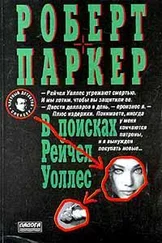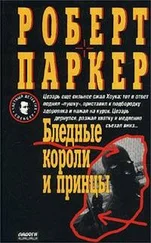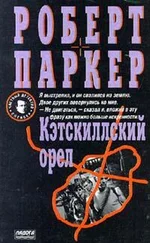“Hey, Jane,” I said to the hostess, “what’s the cat’s name?”
Jane looked startled, as if I’d just awakened her.
“Hester Prynne,” she said.
“Cute name,” I said.
She nodded. Jennifer murmured to me, “Boy, you are some conversationist.”
“If they had a black lab they’d name it Othello,” I said.
“Oh, now,” Jennifer said, “they’re not so bad.”
“Like hell they’re not,” I said. “They are more predictable than Prussian noblemen. They dress the same, they talk the same, they are cute in the same way, they have the same furniture, the same attitudes. All the women look the same: No makeup, pseudo-proletarian clothes, granny glasses as needed.”
“God,” Jennifer whispered, “they must think I’m a whore.”
“No booze,” I went on. “A lot of grass. East Indian zither music or whatever the hell that is. Bookcases made with bricks and boards.”
“You’re so absolute, Boonie. You’re scary sometimes. Hard to live up to.”
“I’m thirty-six years old,” I said. “I’ve done a lot of things and I’ve thought about all of them. Sometime in life you have to stop speculating and start deciding. I’ve done that.”
“You’ve had more experience than most of us.”
“It’s not the experience,” I said. I wanted her to understand. Maybe I even wanted to instruct her a little. “It’s what you do with it. It’s what you turn it into.”
“Why turn it into anything,” Jennifer said. “Why does it have to be systematized?”
“So you won’t kick around like a grasshopper on a hot afternoon,” I said.
Our host in the tie-dyed T-shirt said, “Boone, you were in the army.”
“Yes.”
He shook his head. They had been talking about Vietnam.
“How’d you let them get you?”
I’d had the conversation before. I knew how it would go. It was like talking sex with a virgin. I sighed softly. Jennifer looked at me.
“They were going to get somebody,” I said. “I didn’t see any reason why it shouldn’t be me.”
Jane said, “Wow, they had you brainwashed, didn’t they?”
“A different time,” I said. “For a lot of us then it was a rite of passage. Now resisting it is a rite of passage.”
“That’s all you think the antiwar movement is?” the host said.
“Barry,” I said, “I don’t think about movements any more than I have to. Trying to assign a single motive to a movement is like trying to catch minnows in your fist.”
“It’s that attitude that permits it,” Barry said. “People that don’t concern themselves. Easy for you, Boone, I suppose. They can’t draft you.”
I smiled at Jennifer. “At least I understand that,” I said to her. “I can identify with not wanting to get drafted.”
“That’s a legitimate concern, Boonie,” Jennifer said.
Barry was inflamed. “That’s not it,” he said. “That’s not where it’s at. That’s not what it’s about. Our commitment is to change. The world’s gone too long this way, the masses like cattle herded into the military to be massacred in wars of imperialism. People who serve in a war are traitors and it’s themselves they betray.”
For the first time since 1961 I felt like I needed a drink. “ Mea culpa ,” I murmured.
“It’s Standard Oil that wants this war. It wants the oil in southeast Asia.”
I could feel myself going. “Standard Oil isn’t anybody,” I said. “It’s like the peace movement. It’s an artificial entity made up of lots of people who are not entirely interchangeable.”
“Boone, that’s an incredibly naive view of society,” Barry said.
I nodded. Jennifer put her hand on my arm.
“Some of the sons of some of the people who work for Standard Oil are at this moment getting their balls blown off in Vietnam,” I said. “I don’t suppose their parents are fully consoled by corporate profits.”
Jane leaned forward, her hands clasped in her lap. “Boone. It’s hard for you to understand, I know. It’s hard for you to oppose the war. You’re older and...” She hesitated, trying to think how to say it. “Well, look at you, I mean you lift weights and...” She let the rest hang.
“Despite having a thick neck,” I said. “I think the war is wrong. I think it’s a mistake. But I’m not sure everyone involved in it is evil. I’m not even sure the world would run better if you took it over, Barry.”
Barry shook his head with dogged passion. “Things can change,” he said. “And people willing to make the commitment can change them.”
“I can agree with that,” I said. Jennifer sipped at her mulled cider and watched me over the rim of the glass. I smiled at her. “And I believe in commitment,” I said.
Cambodia had been invaded. Jennifer had marched in protest, and the march had culminated with a takeover of the Student Union Building at Taft. I went with her. I had no sense that we would bring the warmongers to their knees. But Jennifer was passionate about it and I was happy to be with her, to share her passion, or to insert myself in the path of nightstick or firehose if the chance appeared, if I was lucky.
So we sat together on the stairs of the Union while outside the campus police awaited the arrival of the Tac cops. The electricity had been shut off to discourage us, but it merely added to the excitement. Looking back now, I marvel at how every step the authorities took to combat the demonstrations added to the fun of the demonstrations, nourished the demonstrators, enriched their opportunity to demonstrate their authenticity, offered them the consolations of martyrdom and simple joys of nonfatal combat.
“This is crazy,” Jennifer said. “You being here. You aren’t committed to this.”
“I’d like to see them stop the war,” I said.
“But that’s not why you’re here.”
“No.”
We spoke in whispers, sitting in the dark with students all around us whispering among themselves, and the smell of grass and cigarettes and humanity seeping around us in the close dark. Through the glass doors of the Union there was movement in the quadrangle, but we couldn’t see of what. There was the familiar revolving flash of the police cars, but they had been there since we’d occupied the building.
In the dimness, close to me, I could see Jennifer shake her head. “I spend more time with you than with my husband,” Jennifer said.
“Yes.”
“He should be here with me.”
“Or you with him,” I said.
“He doesn’t approve of this; he wants to become chairman of the department.”
“His wife’s behavior would have some effect on that,” I said.
“Well, it shouldn’t. I’m who I am, he’s who he is.”
“True,” I said. “But it does. Probably always will.”
“You would say the hell with being chairman.”
“To be with you,” I said.
I could feel her left thigh pressed against mine. Her hip. Her left arm and shoulder. We had to lean close to hear each other’s whispers.
“Are we being silly, Boonie?”
“You and me?”
“No, all of us. All of us who march and protest and occupy buildings and try to change things?”
“No, you’re not silly,” I said. “It’s bound to help. It already has.”
“Sometimes I feel like a jerk,” Jennifer said. “A grown woman marching around with a bunch of kids yelling slogans. John says I should grow up.”
“This is one of the ways,” I said.
“Yes,” Jennifer said. “Yes, it is. John says I am selfish, that I’ve abandoned my responsibilities and been swept up in myself. He says all I care about is being with it.”
“You don’t believe him,” I said.
Читать дальше












